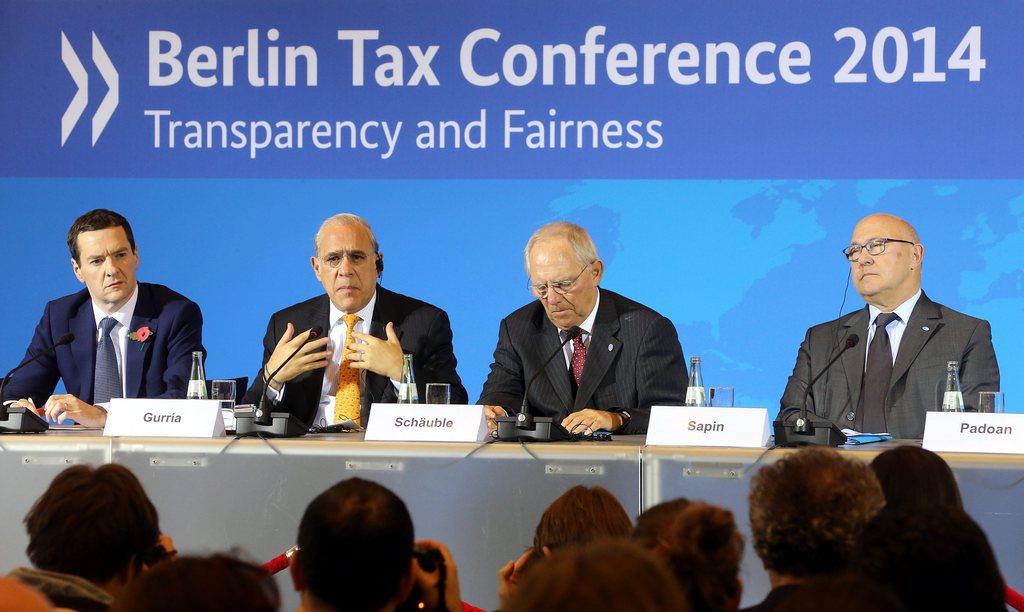Divisive corporate tax reform ready for parliament

The cabinet plans to abolish the special tax status for holding companies and to introduce preferential treatment for revenue from patents associated with research and development (R&D) in line with international standards.
Presenting the bill, Finance MinisterExternal link Eveline Widmer-Schlumpf said the cabinet had also decided to allow cantons to grant additional fiscal deductions on R&D, and had proposed nationwide rules for the disclosure of hidden reserves.
However, the cabinet dropped initial proposals presented last September for the introduction of a tonnage transport tax to make up for the shortfall in revenue estimated at CHF1.3 billion ($1.4 billion).
“It is a very important reform and aims to keep Swiss economy competitive for innovation and jobs,” Widmer-Schlumpf said on Friday following a regular cabinet meeting.
She said the reform would also have an impact on the funding scheme between the federal authorities and the 26 largely autonomous cantons.
Parliament is due to begin discussions on the corporate tax reform later this year, but initial reaction from political parties and other organisations was mixed. The left has warned against a drop in revenue at the expense of citizens.
Widmer-Schlumpf for her part said the tax shortfall was the price to pay to keep multinational companies in the country.
“It is worth investing these CHF1.3 billion, otherwise it would cost us even more,” she said.
Switzerland has been under pressure notably from its main trading partner, the European Union, to review its corporate tax rules.
Tax information
Meanwhile, the cabinet has agreed on two bills for parliament to amend legislation over the automatic exchange of information on tax issues with other countries and on due diligence rules for financial institutions, including banks and casinos.
Agreements with the Organisation of Economic Development and Co-operation (OECD) and the Council of Europe were signed by Switzerland in October 2013 and November 2014 respectively.
They cover different forms of exchange of tax data, including legal assistance in fiscal matters.
Widmer-Schlumpf hopes parliament will table the bills later this year so that the law can be implemented at the beginning of 2017. The first exchange of information could take place a year later.
She said most cantons and parties, as well as the banking community, had agreed to the necessary legal amendments during the consultation procedure.
Widmer-Schlumpf said the reform would pave the way for agreements similar to that with the EU signed in May.
She stressed that banking secrecy rules for domestic customers are not part of the bill and should be discussed separately at a later stage.

In compliance with the JTI standards
More: SWI swissinfo.ch certified by the Journalism Trust Initiative





You can find an overview of ongoing debates with our journalists here. Please join us!
If you want to start a conversation about a topic raised in this article or want to report factual errors, email us at english@swissinfo.ch.